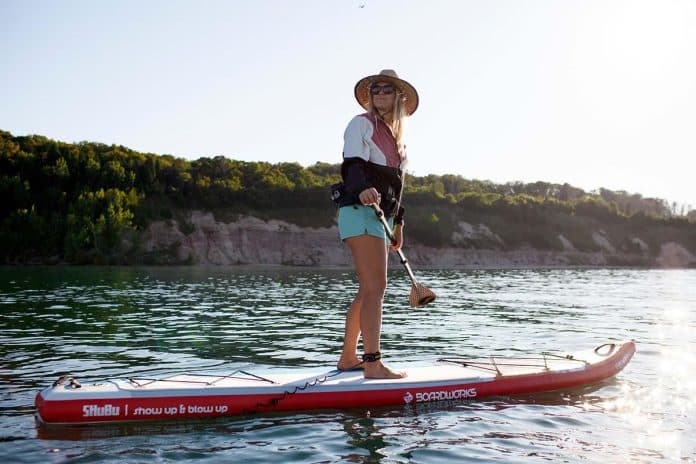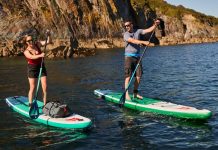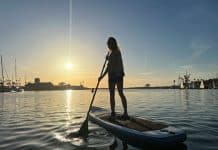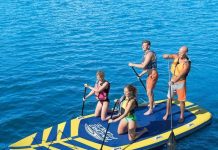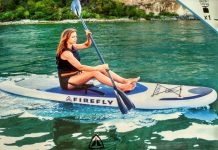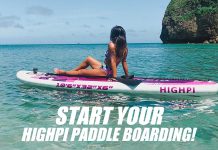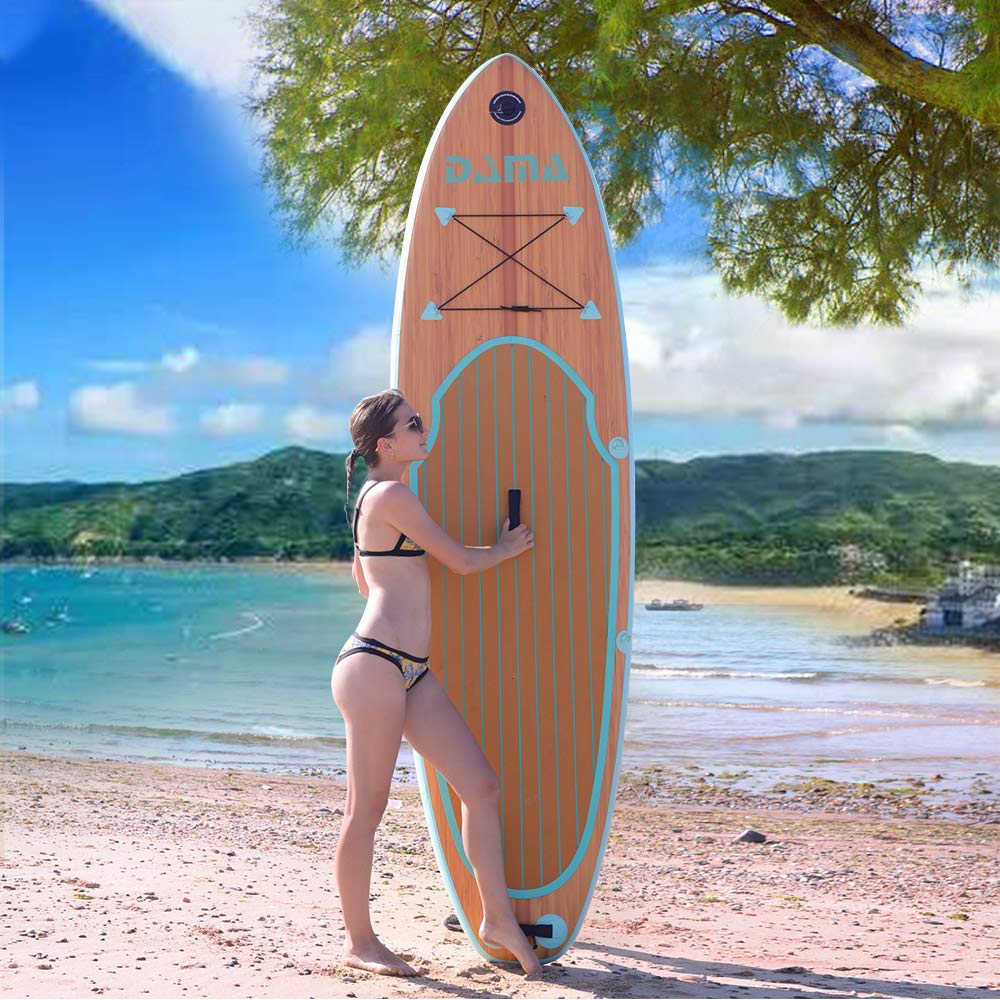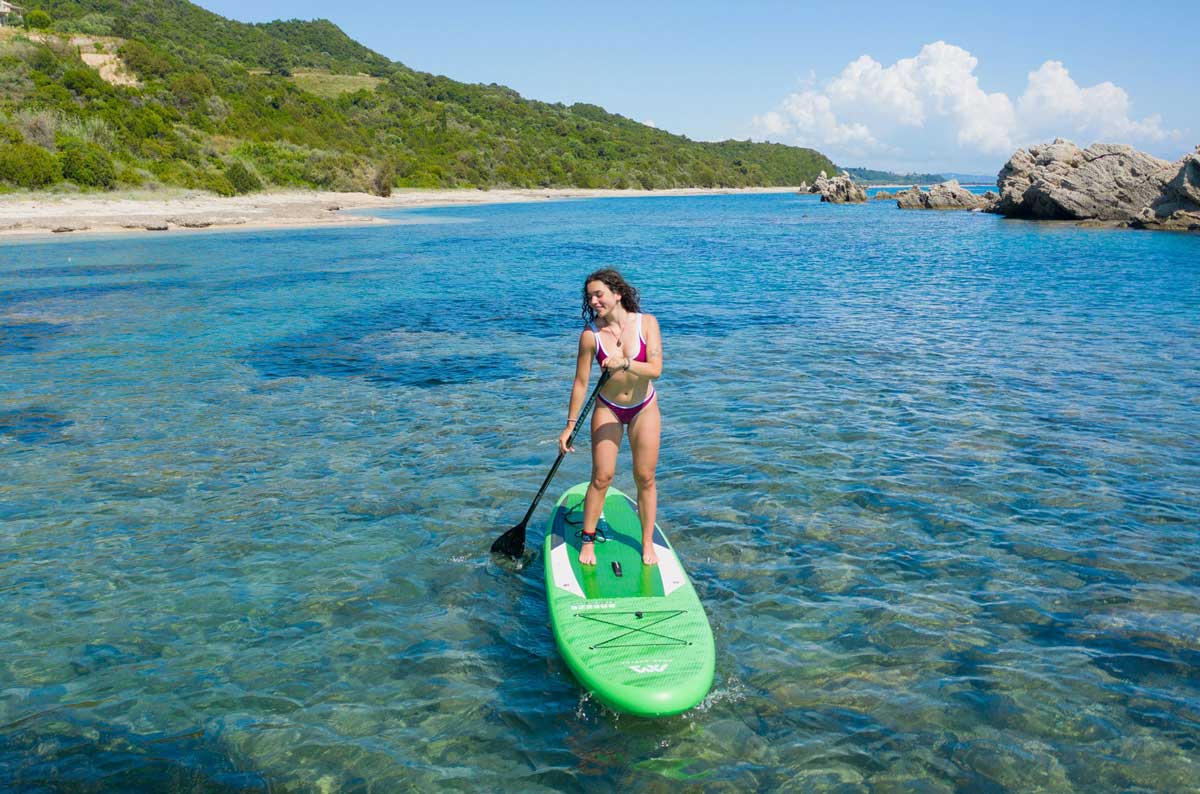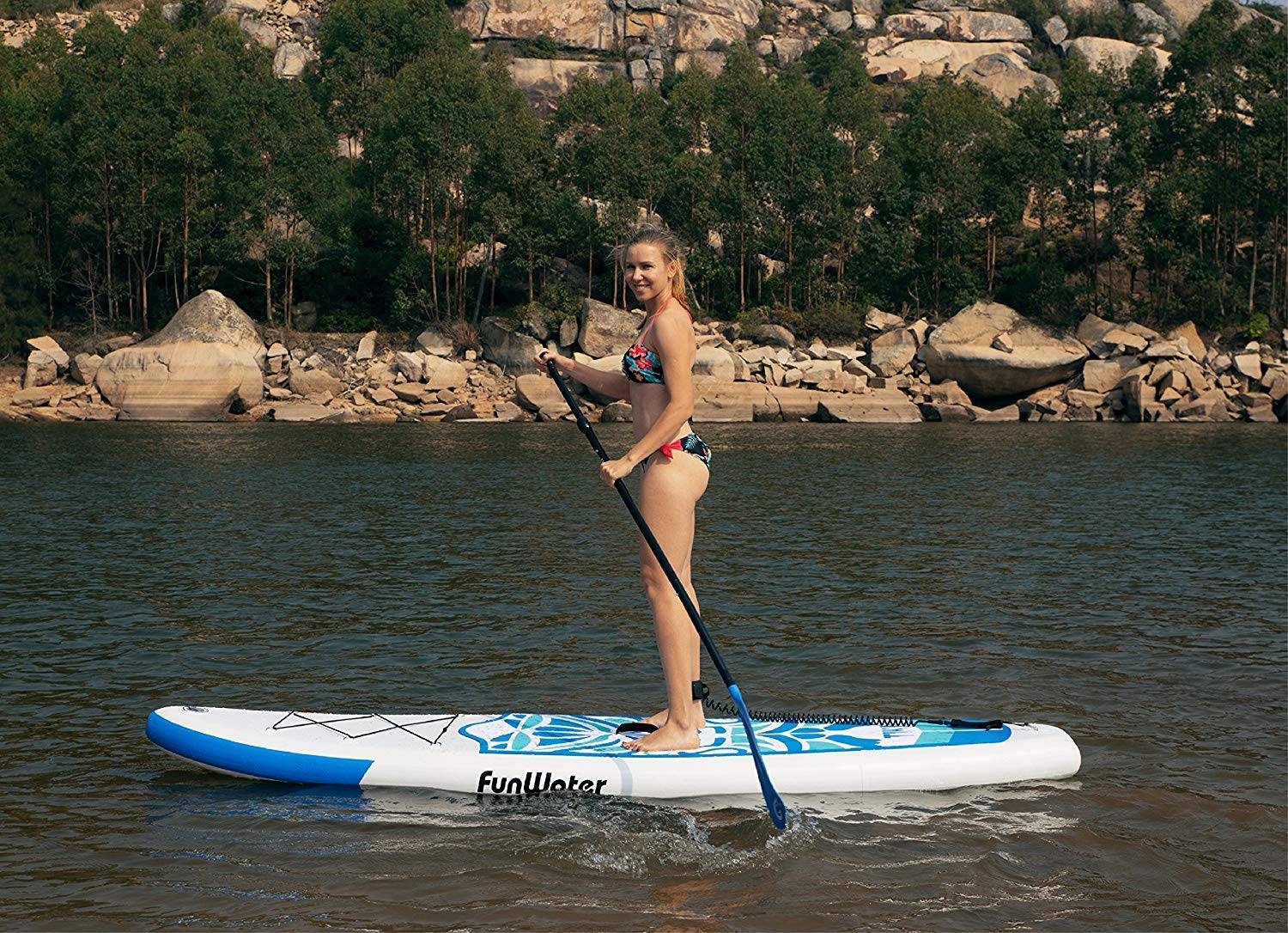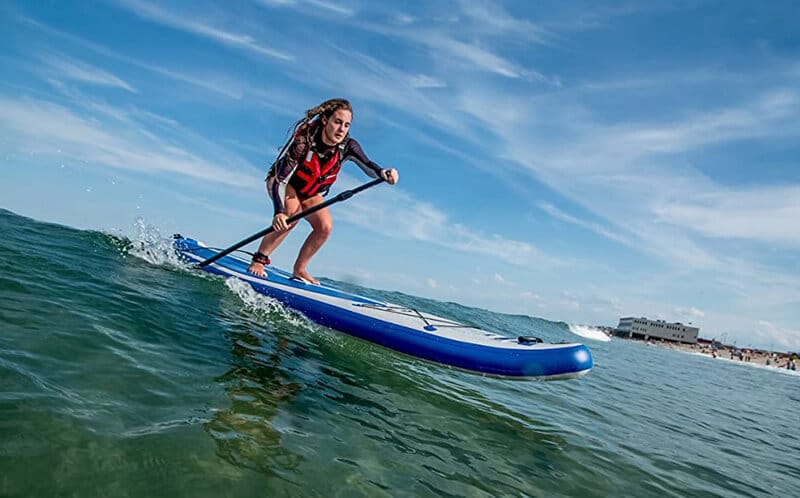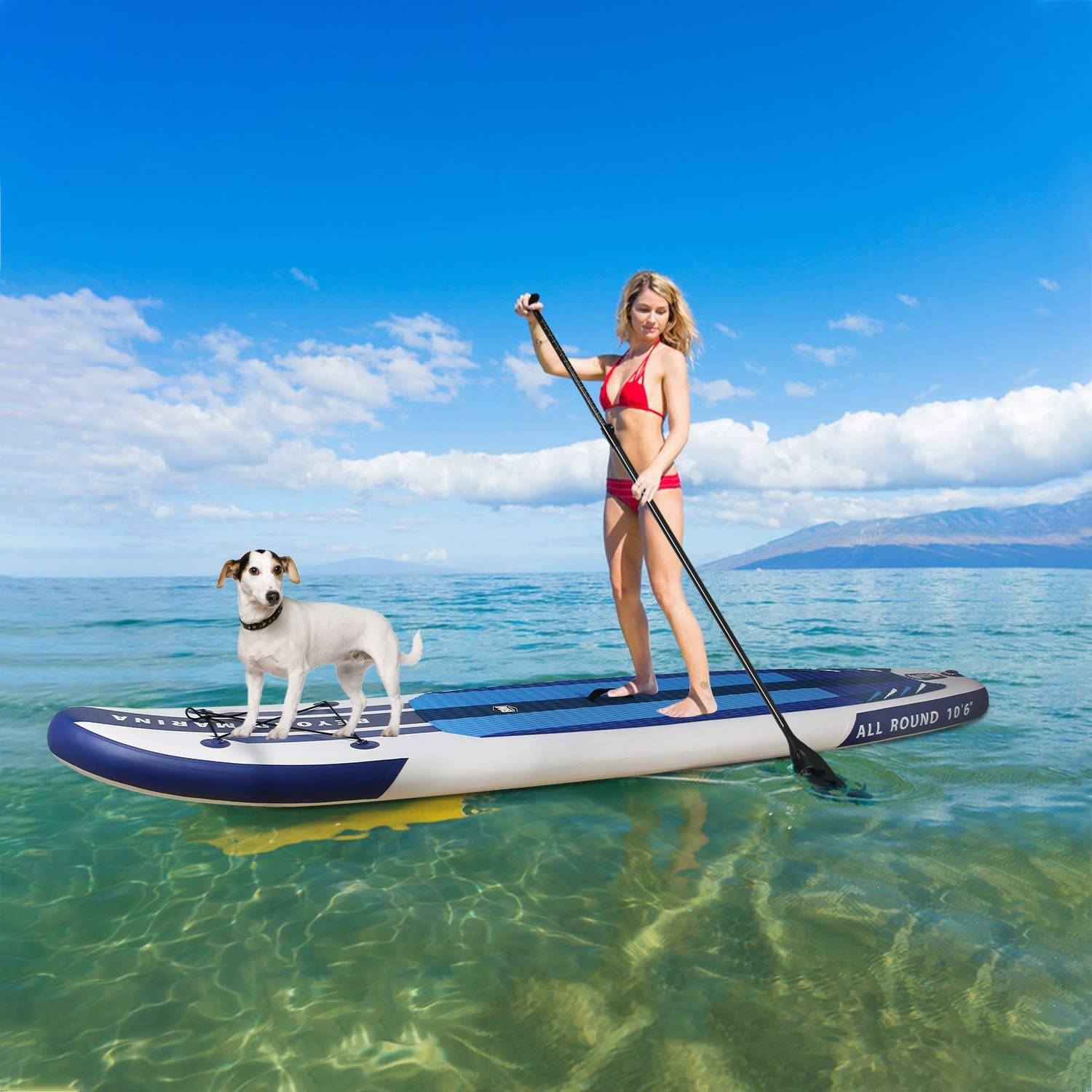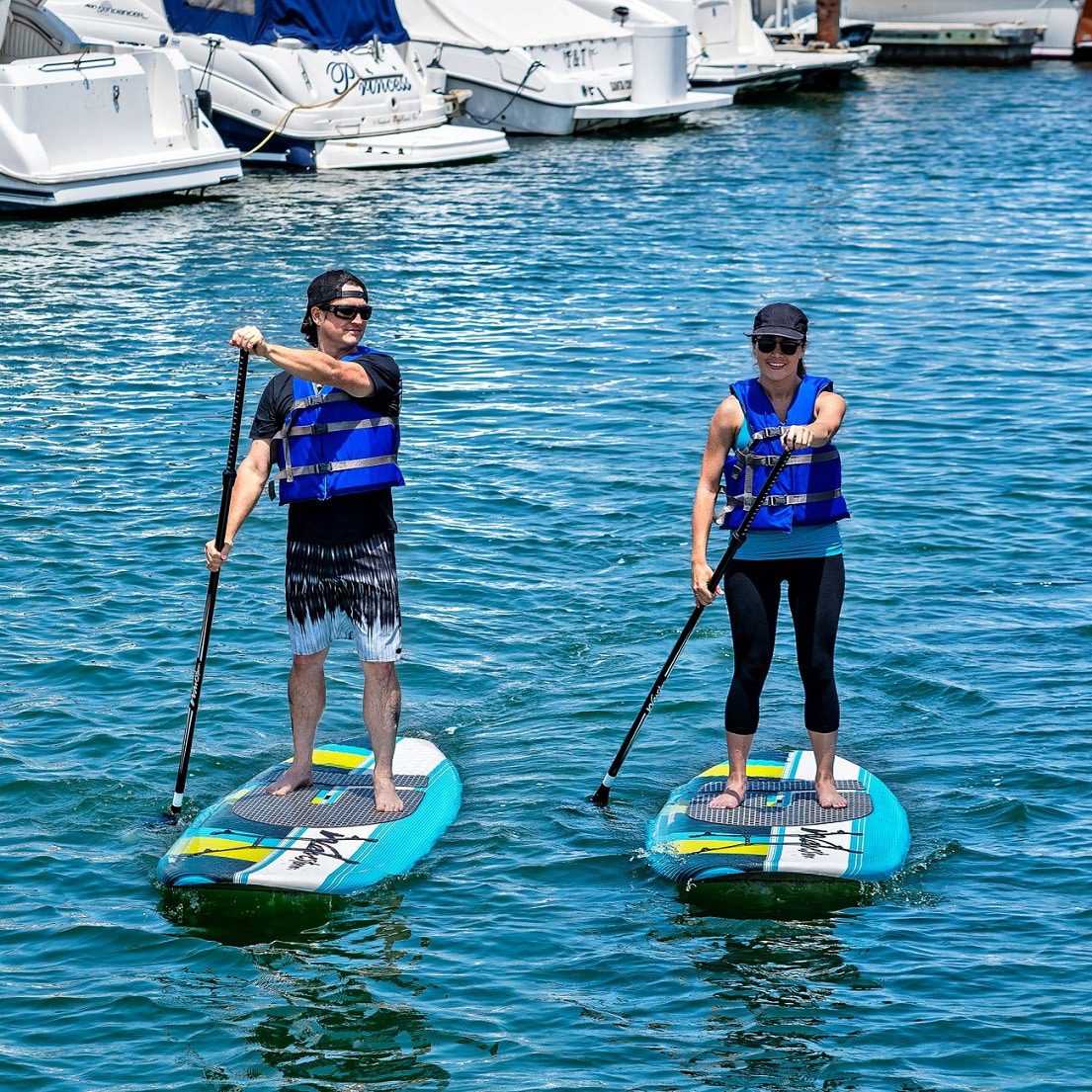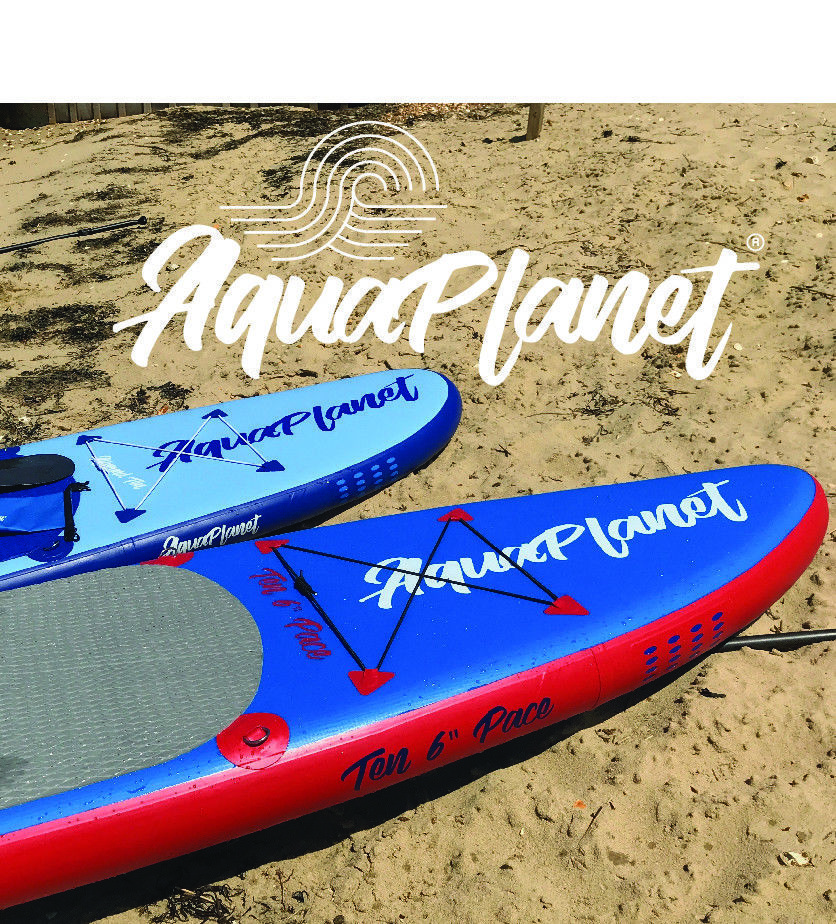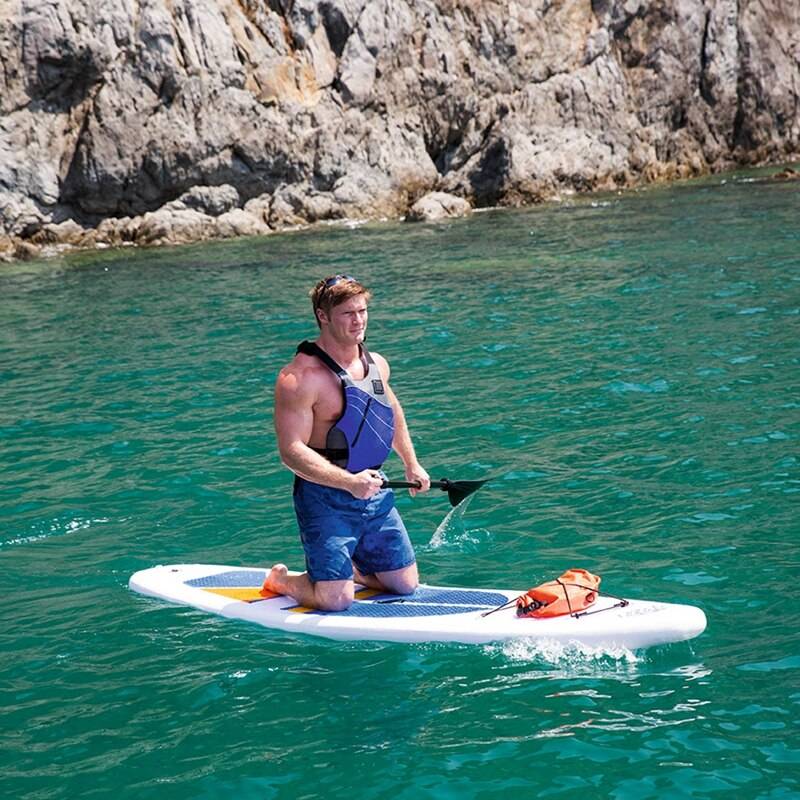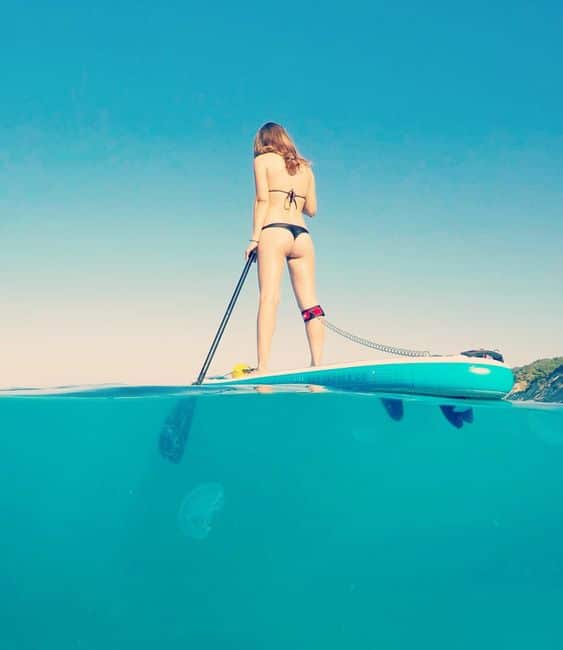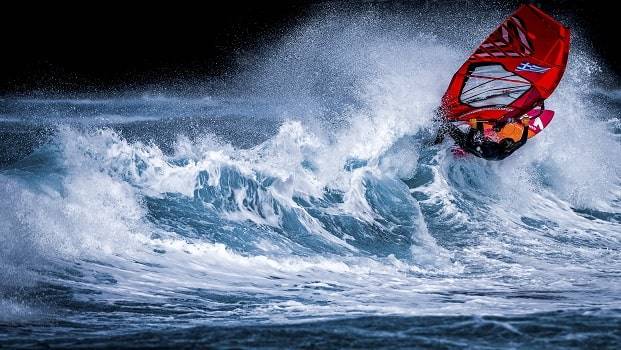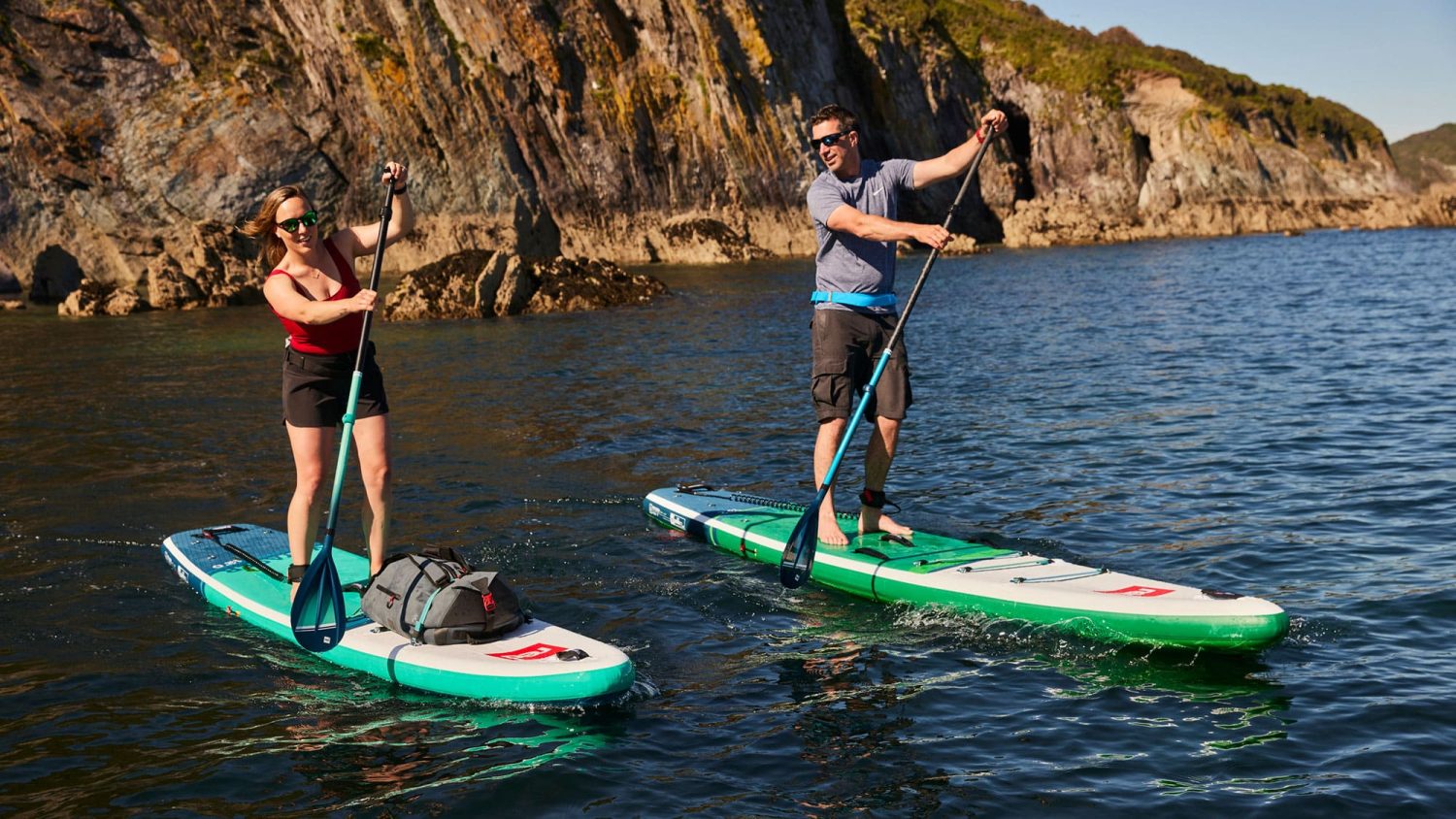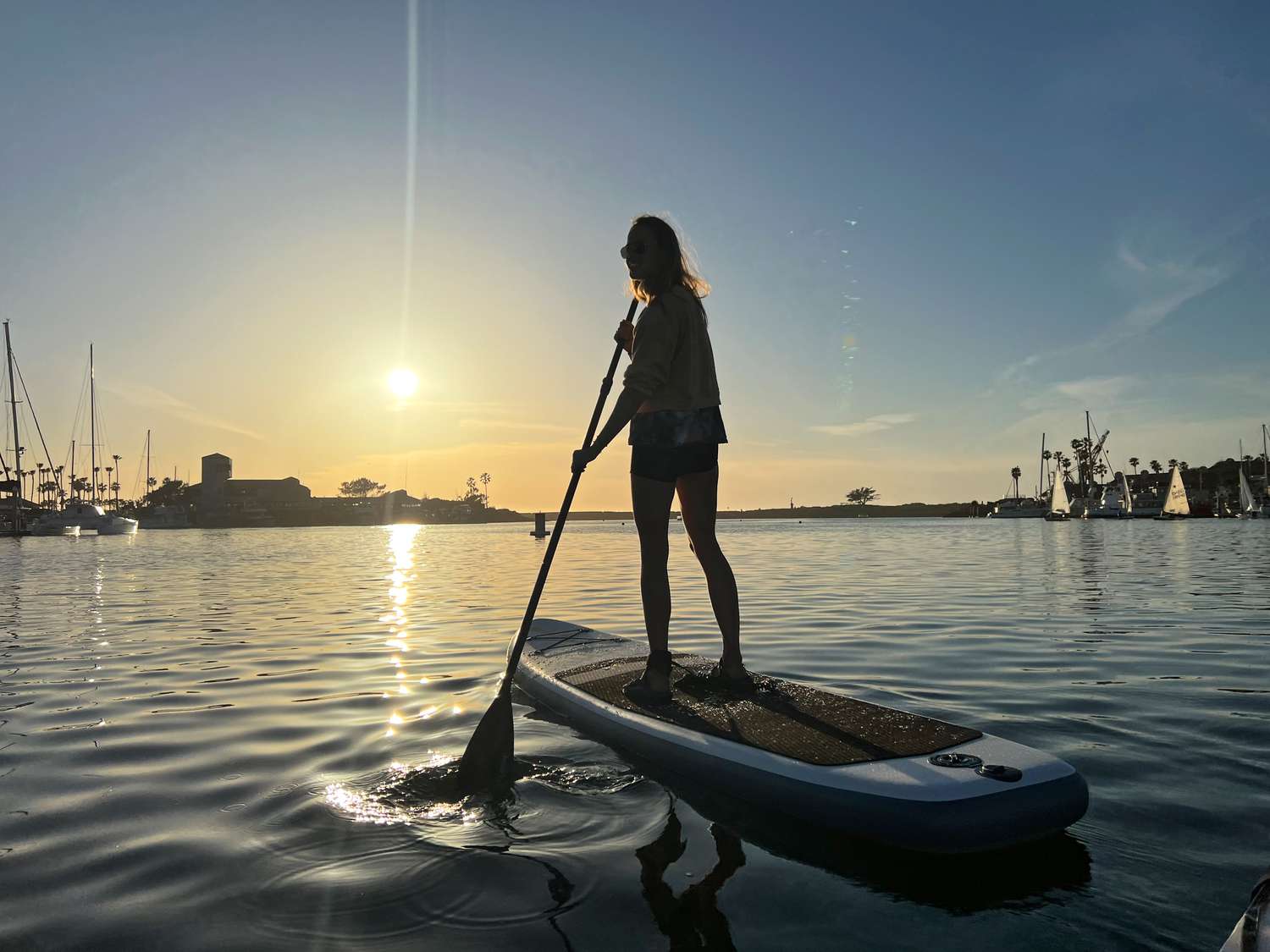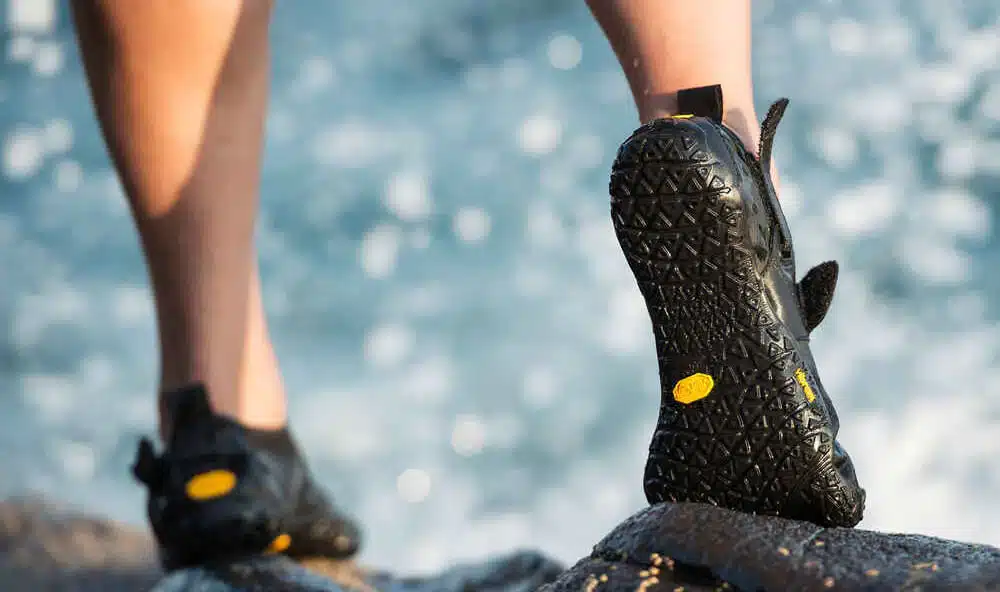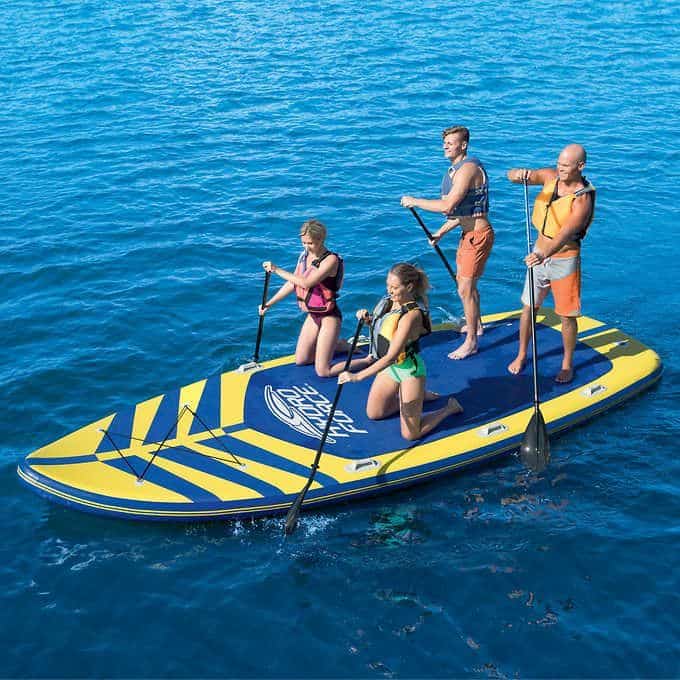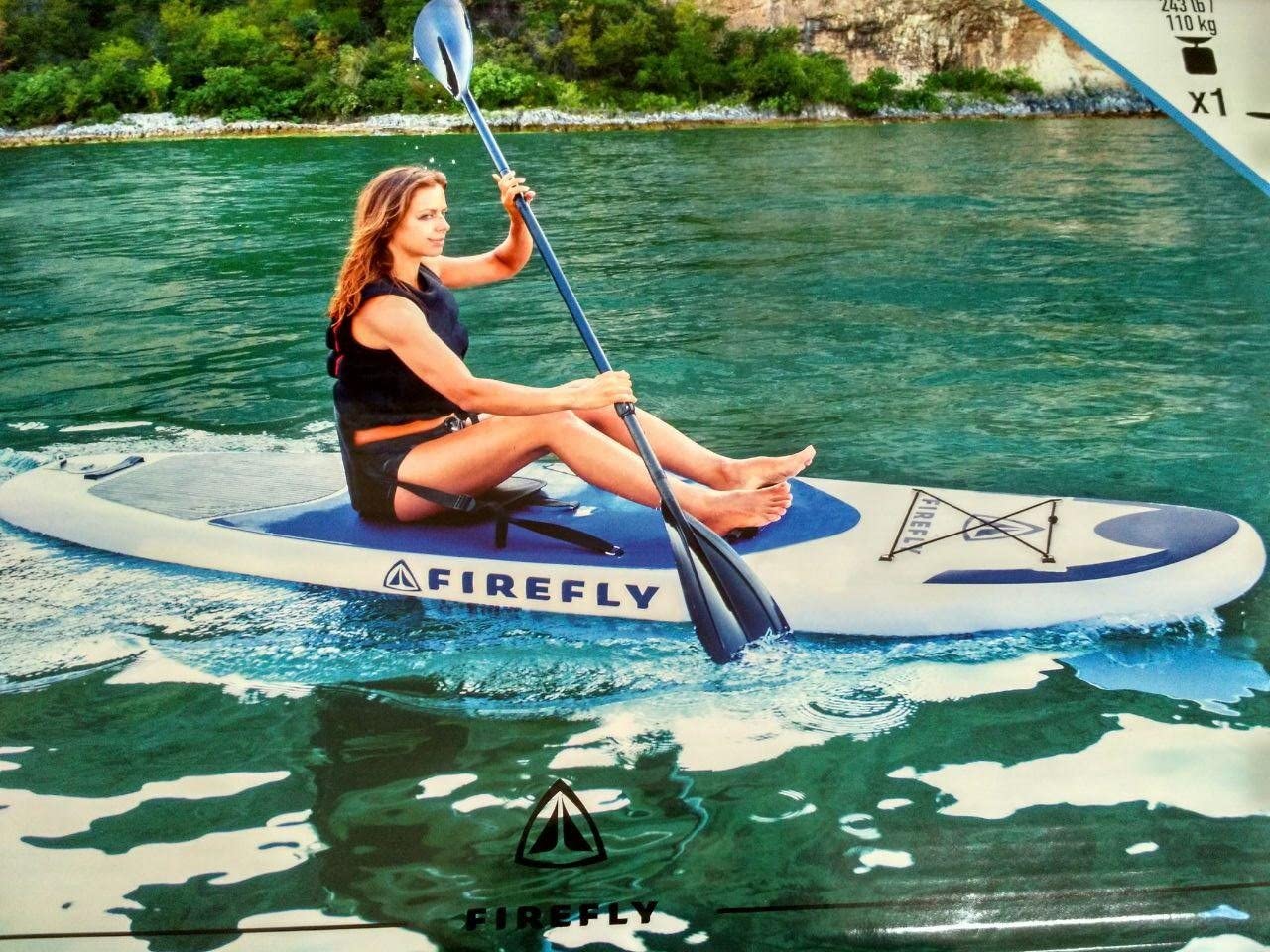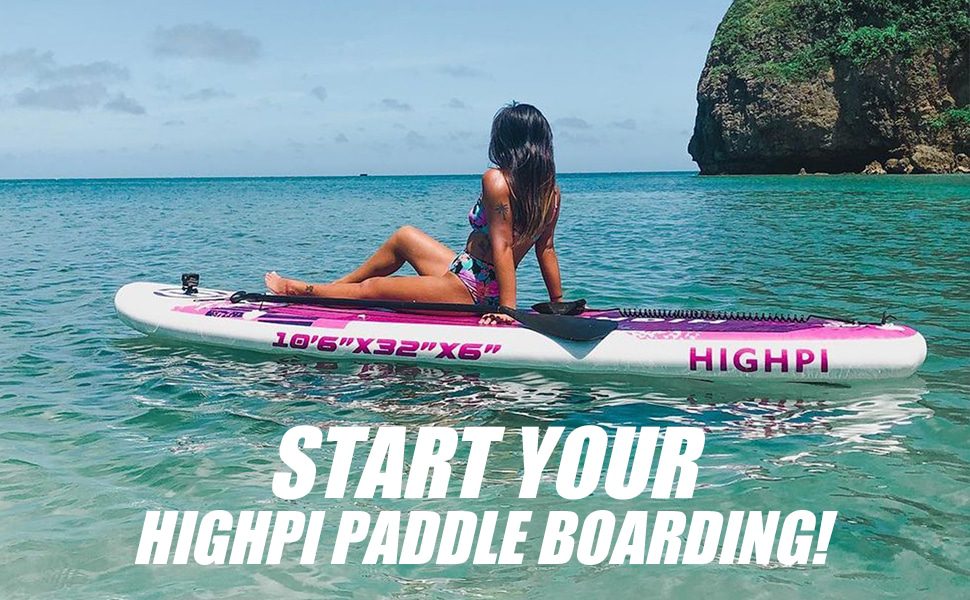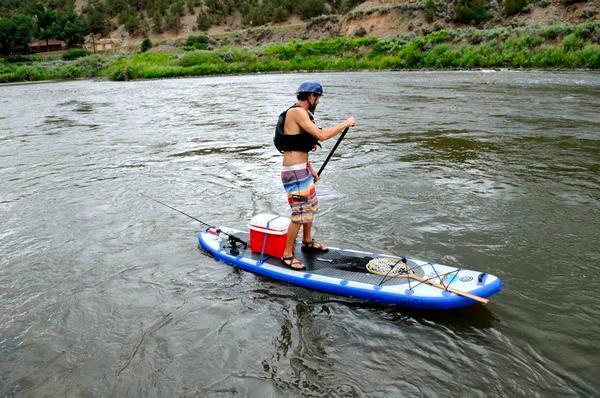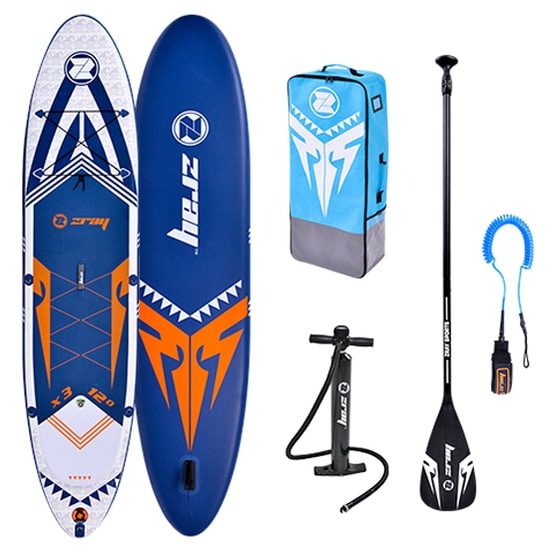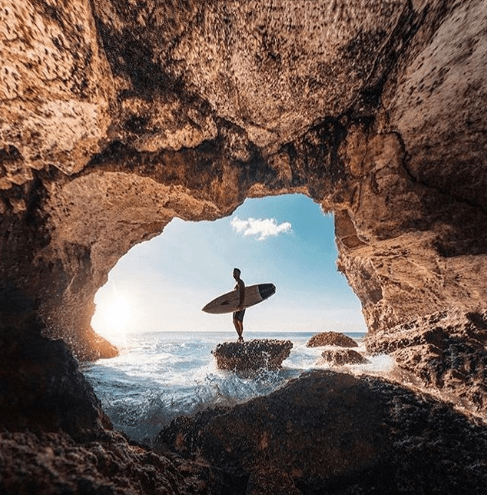SUP board camping, also known as Expedition SUP, combines stand-up paddleboarding and camping.
It involves paddling to a secluded camping spot and setting up camp for the night or multiple nights.
This type of camping allows you to access breathtaking locations not accessible by cars or bigger vessels.
It is a great way to escape the summer heat and enjoy nature’s waterways and camping spots.
What is SUP Camping?
SUP camping, also known as stand-up paddle board camping, combines the thrill of paddling with the adventure of camping.
It involves using a paddle board to explore nature’s waterways and find the perfect camping spots.
Introduction to SUP Camping
SUP camping is a unique way to connect with nature and experience the great outdoors.
It allows you to explore rivers, lakes, and even the ocean while carrying all your camping gear on your paddle board.
Benefits of SUP Camping
SUP camping offers numerous benefits for outdoor enthusiasts. First and foremost, it allows you to access remote and secluded camping spots that are not easily reachable by foot or traditional camping methods.
It combines the tranquility of being on the water with the freedom of camping in the wilderness. SUP camping also provides a great workout as paddling engages your entire body, giving you a full-body workout while enjoying nature.
Choosing the Right SUP Board for Camping
When it comes to SUP camping, choosing the right board is crucial. Various types of SUP boards are available, including inflatable and solid boards.
Inflatable paddle boards are popular for camping as they are lightweight, easy to transport, and can be deflated and packed into a compact size. Look for a board with sufficient attachment points and bungee cords to secure your camping gear.
Planning Your SUP Camping Trip
Planning is essential to ensure a successful SUP camping trip. Here are some key aspects to consider:
Finding the Perfect Campsite
Research and explore different waterways and camping spots to find the perfect campsite for your SUP adventure.
Look for areas with calm waters, beautiful surroundings, and facilities such as access to drinking water and toilets if needed. Ensure the campsite is paddle board-friendly and allows camping on or near the water.
Essential Camping Gear for SUP Camping
You must carefully select your camping gear when packing for a SUP camping trip. Consider the weight and size of each item, as you’ll need to fit everything on your paddle board.
Invest in lightweight and compact camping equipment, including a waterproof tent, sleeping bag, camp stove, and cooking utensils. Don’t forget to pack dry bags to keep your belongings safe and dry on your paddle board.
Packing List for SUP Camping
Create a comprehensive packing list to ensure you have everything for your SUP camping adventure. Include items such as a paddle, life jacket, navigation tools, camping essentials like food and water, clothing, sun protection, a first aid kit, and any other personal items you may require. It’s essential to pack light but also be prepared for various weather conditions and emergencies.
Tips for a Successful SUP Camping Adventure
Once you’ve planned your SUP camping trip, it’s time to prepare for the adventure. Here are some tips to ensure a successful experience:
Preparing Your SUP Board for Camping
Before setting off on your SUP camping adventure, ensure your paddle board is in good condition.
Check for any damages, inflate it properly using an inflatable board, and secure loose attachments. Test your board’s stability and practice paddling to get comfortable with the extra weight of your camping gear.
Understanding Leave No Trace Principles
Following the Leave No Trace Principle is crucial to minimize your environmental impact when camping in nature.
These principles include carrying out all your waste, respecting wildlife and their habitats, and leaving the campsite as you found it. Be mindful of your actions, and leave nature pristine for future campers and paddlers.
Navigation and Float Plan for SUP Camping
Good navigation skills and a float plan are essential when embarking on a SUP camping trip. Familiarize yourself with maps and charts of the area you plan to explore.
Tell someone about your itinerary, including your planned route and estimated return time. This way, if an emergency arises, help can be sent to the correct location.
Exploring Nature’s Waterways on Your SUP Board
Exploring nature’s waterways is the highlight of SUP camping. Here are some key factors to consider:
Choosing the Best SUP Board for Your Skill Level
When choosing a SUP board, consider your skill level and experience. Beginners may find broader and more stable boards easier to use, while advanced paddlers prefer narrower touring boards.
Test different boards and find the one that suits your skills and the paddling you’ll do on your camping trips.
Exploring Different Types of SUP Boards
Various types of SUP boards are available, each designed for different activities and conditions.
Traditional paddle boards are versatile and suitable for calm waters, while inflatable boards are more convenient for camping trips as they are easy to transport.
There are also specialized surfing, racing, fishing, and yoga boards. Explore the different options and choose the one that best suits your needs.
Essential Skills for SUP Camping Trips
To have a safe and enjoyable SUP camping experience, developing essential paddle-boarding skills is important.
These include proper paddling technique, balance and stability, turning and maneuvering, and self-rescue techniques.
To build confidence and proficiency, take lessons or practice in calm waters before venturing on your camping trips.
Stay Safe and Prepared During Your SUP Camping Trip
Safety should be a top priority when you’re out on the water and camping in nature. Here are some important considerations:
First Aid and Safety Tips for SUP Camping
Ensure you have a well-stocked first aid kit and knowledge of basic first aid procedures. Be prepared for common injuries such as cuts, sunburns, and sprains.
Additionally, follow safety guidelines such as wearing a personal flotation device (life jacket) and staying within your skill level and comfort zone. Always be aware of your surroundings and weather conditions, and avoid paddling alone whenever possible.
Water Filtration and Hydration on Your SUP Camping Adventure
Access to clean drinking water is essential during your SUP camping trip. Invest in a reliable water filtration system or bring sufficient water purification tablets to ensure safe drinking water.
Stay hydrated throughout the day by drinking plenty of water and replenishing electrolytes. Dehydration can quickly occur when spending long hours under the sun and engaging in physical activity.
Repair Kit Essentials for Your SUP Board
Accidents happen, and you must be prepared for damage to your SUP board.
Pack a repair kit that includes adhesive patches, a valve wrench, and other essential tools for fixing minor dents or leaks. Familiarize yourself with basic board repair techniques, or seek professional help.
The excitement about exploring nature’s waterways and camping spots
SUP board camping offers a unique way to explore nature’s waterways and camping spots. It allows you to access secluded locations that are not easily accessible by other means of transportation.
This type of camping also provides an opportunity to engage in outdoor activities such as fishing, wildlife watching, swimming, and hiking[3].
It is a great way to disconnect from daily life’s hustle and bustle and enjoy nature’s peace and tranquility.
Getting Started with SUP Board Camping
What is SUP (Stand Up Paddleboarding)?
Stand-up paddleboarding (SUP) is a water sport that involves standing on a large board and using a paddle to move through the water.
It is a great way to explore waterways and enjoy the outdoors.
Essential equipment for SUP board camping
To get started with SUP board camping, you will need the following equipment:
- Paddleboard selection: Choose a paddleboard suitable for your skill level and the type of water you will be paddling in. Inflatable paddleboards are a popular choice for camping trips as they are easy to transport and store.
- Paddles: Choose a paddle that is the correct length and weight for your height and paddling style. Adjustable paddles are a good option as they can be adjusted to fit different paddlers.
- Safety gear: Always wear a personal flotation device (PFD) and bring a whistle and a light in emergencies.
- Camping equipment: Bring a tent, sleeping bag, cooking stove, and other essentials.
Choosing the right location for SUP board camping
When choosing a location for SUP board camping, consider the following factors:
- Water conditions: Choose a location with calm waters and minimal boat traffic[5].
- Accessibility: Look for a location that is easily accessible and has a suitable launch point for your paddleboard.
- Camping regulations: Check local regulations and permits before camping along waterways.
Planning and Preparing for a SUP Board Camping Trip
Understanding weather conditions and tides
Before embarking on a SUP board camping trip, it is essential to understand the weather conditions and tides in the area.
Check the weather forecast and tide charts to ensure safe paddling conditions.
Packing essentials for a SUP board camping trip
When packing for a SUP board camping trip, bring the following essentials:
- Clothing and footwear: Bring appropriate clothing and footwear for the weather conditions and water temperature[
- Camping gear: Bring a tent, sleeping bag, cooking stove, and other camping essentials
- Food and water: Bring enough food and water for the duration of your trip
- First aid kit: Bring a first aid kit with essential supplies
Tips for efficiently packing your gear on the paddleboard
When packing your gear on the paddleboard, distribute the weight evenly to ensure stability. Use dry bags to keep your gear dry and secure.
Safety Considerations and Precautions
Before embarking on a SUP board camping trip, ensure that you have basic paddleboarding skills and know how to deal with emergencies. Understand local wildlife and potential hazards and take necessary precautions.
Exploring Waterways and Camping Spots
Importance of leaving no trace and practicing eco-friendly camping
Leaving no trace and practicing eco-friendly camping is essential when camping along waterways. This means packing out all trash and minimizing your impact on the environment.
Navigating waterways with SUP boards
Use proper paddling techniques to navigate waterways with SUP boards and understand currents and water conditions. Choose a route suitable for your skill level and the type of water you will be paddling in.
Finding the perfect camping spots
Consider scenic spots along waterways, hidden gems, and lesser-known locations when looking for camping spots. Check camping regulations and etiquette before setting up camp.
Enjoying Outdoor Activities during SUP Board Camping
During a SUP board camping trip, you can enjoy various outdoor activities such as fishing, wildlife watching, swimming, and hiking.
Frequently Asked Questions (FAQs)
What are the benefits of SUP board camping?
SUP board camping allows you to access secluded locations that are not easily accessible by other means of transportation. It is a great way to disconnect from daily life’s hustle and bustle and enjoy nature’s peace and tranquility.
Is paddleboarding challenging to learn?
Paddleboarding is easy to learn and suitable for all skill levels. With proper instruction and practice, anyone can become proficient at paddleboarding.
How can I stay safe while paddleboarding?
To stay safe while paddleboarding, always wear a personal flotation device (PFD) and bring a whistle and a light in emergencies. Understand local wildlife and potential hazards and take necessary precautions.
Are there any age or fitness restrictions for SUP board camping?
There are no age or fitness restrictions for SUP board camping. However, choosing a route and location suitable for your skill level and physical abilities is essential.
Can I bring my pet along for a paddleboard camping trip?
Yes, you can bring your pet along for a paddleboard camping trip. However, check local regulations and ensure your pet is comfortable on the paddleboard and in the camping environment.
What should I do if I encounter wildlife during my trip?
If you encounter wildlife during your trip, keep a safe distance and do not disturb them. Respect their habitat and observe them from a distance.
How do I maintain and care for my paddleboard?
To maintain and care for your paddleboard, rinse it with fresh water after each use and store it in a cool, dry place. Avoid exposing it to direct sunlight for extended periods.
What should I do if my gear gets damaged during the trip?
If your gear gets damaged during the trip, make necessary repairs or replacements as soon as possible. Bring a repair kit and spare parts for emergencies.
Are there any rules or regulations for camping along waterways?
Yes, there are rules and regulations for camping along waterways. Check local regulations and permits before camping along waterways.
What should I do if I encounter lousy weather during my trip?
If you encounter bad weather during your trip, seek shelter and wait for the weather to improve. Check the weather forecast and tide charts before embarking on your trip.
What are some popular locations for SUP board camping
Some popular locations for SUP board camping include:
- Olympic National Park, Washington: Olympic National Park is one of the most popular spots for stand-up paddleboarding in the US[1]. It offers stunning scenery and a variety of waterways to explore.
- Various locations in the US: The US offers numerous locations for SUP board camping, including lakes, rivers, and coastal areas[2]. Some popular destinations include Lake Tahoe in California, the Florida Keys, and the Great Lakes.
- Remote and secluded areas: SUP board camping allows you to access remote and secluded areas that are not easily accessible by other means of transportation[3]. These locations offer a sense of tranquility and the opportunity to connect with nature truly.
- International destinations: There are also popular international destinations for SUP board camping. For example, Lonely Planet suggests destinations such as deep canyons, rainforests, and tropical lagoons for epic, multi-day stand-up paddleboarding adventures.
When choosing a location for SUP board camping, consider factors such as water conditions, accessibility, and camping regulations. Researching and planning are essential to ensure a safe and enjoyable experience.
What are some beginner-friendly locations for SUP board camping
Some beginner-friendly locations for SUP board camping include:
- Lakes: Lakes are often an excellent option for beginners due to their calm waters and minimal currents. Smaller lakes, in particular, tend to have more favorable conditions for paddleboarding.
- Coastal bays and inlets: Coastal bays and inlets can provide a sheltered environment for beginners to practice paddleboarding and enjoy camping. These areas often have calmer waters compared to open ocean areas.
- Slow-moving rivers: Rivers with slow currents can be suitable for beginners to paddleboard and camp. These rivers offer a unique and scenic experience, allowing you to explore nature leisurely.
- Beginner-friendly destinations: Some destinations are known for being beginner-friendly and offer a range of paddleboarding and camping opportunities. For example, Olympic National Park in Washington is famous for stand-up paddleboarding and offers various waterways for beginners.
When choosing a beginner-friendly location for SUP board camping, consider factors such as calm water conditions, accessibility, and the availability of beginner-friendly paddleboarding instruction or rental services.
It is essential to start with shorter trips and gradually build up to more extended and more challenging expeditions as you gain experience and confidence.
Citations:
[1] https://www.standuppaddleboardsreview.com/sup-camping/
[2] https://thursosurf.com/blog/sup-places-to-go-camping/
[3] https://she-explores.com/gear/beginners-guide-sup-camping/
[4] https://www.supconnect.com/tips/stand-up-paddleboard-sup-camping-tips
[5] https://coolofthewild.com/sup-camping-paddle-board-camping/
[6] https://www.supboardguide.com/best-paddleboards-for-beginners
Q: What gear do I need for a paddle board camping trip?
A: For a paddle board camping trip, you will need a stand-up paddle board, a paddle, camping gear (tent, sleeping bag, cooking supplies, etc.), a water filter, and personal items.
Q: How do I plan my first SUP camping trip?
A: To plan your first SUP camping trip, research potential camping destinations accessible by water. Consider the length of your trip, weather conditions, and any necessary permits or regulations.
Q: What type of paddle should I use for paddle board camping?
A: Using a touring paddle for paddle board camping is recommended. These paddles are designed for longer distances and provide better efficiency.
Q: What should I consider when planning a SUP camping trip?
A: When planning a SUP camping trip, consider factors such as the duration of your trip, camping regulations at your chosen destination, weather conditions, and the size of your paddle board.
Q: What should I bring on a paddle board camping trip?
A: On a paddle board camping trip, you must bring essential camping gear such as a tent, sleeping bag, cooking supplies, water filter, and personal items. It is also essential to pack appropriate clothing and safety equipment.
Q: Do I need any particular skills to go SUP camping?
A: While some stand-up paddle boarding experience is beneficial, you do not need any special skills to go SUP camping. However, it is recommended to have basic paddle board skills and knowledge of camping techniques.
Q: Can I go wild camping on my paddle board?
A: Yes, you can go wild camping on your paddle board. Wild camping refers to camping in remote, undeveloped areas. However, it is essential to research and follow any camping regulations or restrictions in the area.
Q: How do I ensure a successful SUP camping trip?
A: To ensure a successful SUP camping trip, it is essential to plan, pack appropriate gear, check weather conditions, and be prepared for potential challenges. Familiarize yourself with paddle board safety guidelines and camping etiquette.

